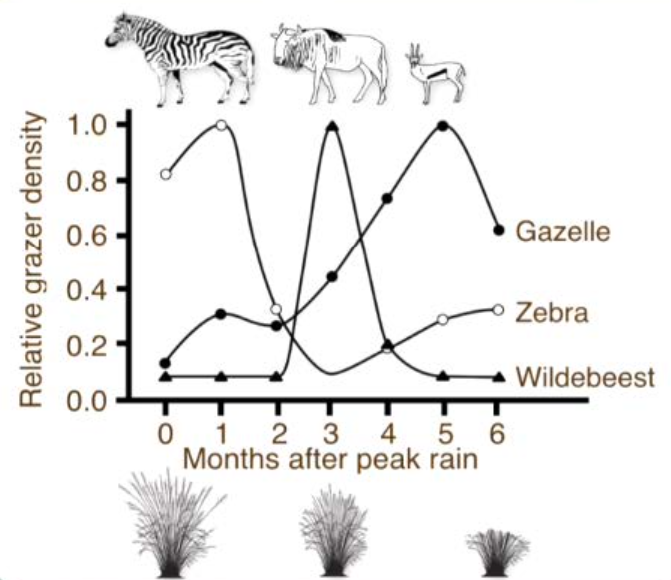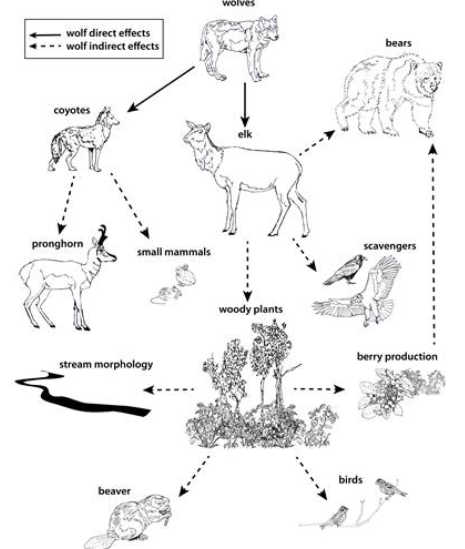Chapter 6 - Communities 
Case Study - Yellowstone Wolves
Should wolves be reintroduced into Yellowstone?
6.1 Habitats, Niches, and Species Interactions
Habitat - physical area where an animal lives (Example: ponds)
Microhabitats - smaller areas within a larger habitat (Example: pond shoreline)
Microbiome - bacteria that live in the soil, water, or even the gut
Tolerance - the environmental conditions in which an organism can survive
Niche - an organism's habitat, what it eats, how it interacts with other organisms
Competitive Exclusion Principle - no two species can occupy the same niche
Example: Five species of warblers in occupy different spaces in a tree
Predator Prey Relationships - a cycling that occurs between predator and prey; when the number of prey increases, so do the number of predators
Keystone Species - a species that maintains ecosystem balance and supports biodiversity
Kelp Forest Ecosystem - explores the interaction between sea urchins, sea otters, and kelp
Trophic Cascade - an ecological phenomenon triggered by the addition or removal of top predators
Example - Introducing wolves (back) into Yellowstone
Symbiosis - relationship where at least one species benefits
Mutualism - both benefit (Example: Clownfish and sea anemone)
Commensalism - one benefits (Example: sharks and remoras)
Parasitism - relationship where one species is harmed and the other benefits (Example: ticks and tapeworms)
6.2 Ecological Succession
Primary Succession - occurs in a newly formed habitat
Secondary Succession - occurs after a disturbance, like a fire
Pioneer Species - first organisms to colonize
Climax Community - final, stable stage
6.3 Biodiversity, Ecosystems, and Resilience
Biodiversity - the variety and variability of the organisms in an ecosystem
Ecosystem diversity - variety of habitats and communities
Species diversity - the number of different species
Genetic diversity - the different forms of genes present within a species
Benefits of Biodiversity - medicine, agriculture, resiliance
Ecosystem Services and Biodiversity - refers to the benefits provided by ecosystems to humans
- Food
- Nutrient cycling
- Purifying water
- Storing carbon
- Regulating pests and pollinating crops
- Buffering effects of extreme weather events
Classroom Activities and Resources
Video: Some Animals Are More Equal than Others
Article: Saving a Fussy Predator

